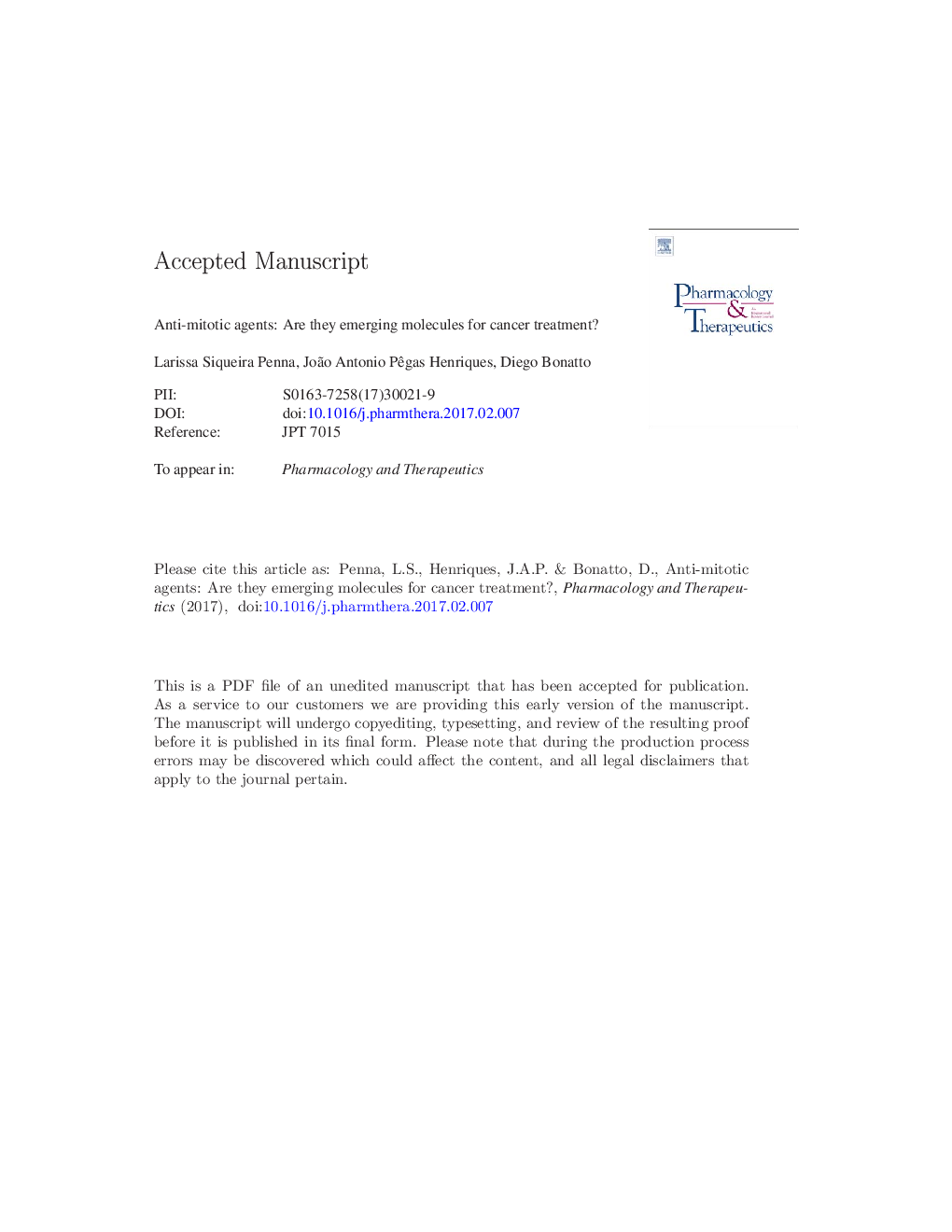| Article ID | Journal | Published Year | Pages | File Type |
|---|---|---|---|---|
| 5557697 | Pharmacology & Therapeutics | 2017 | 68 Pages |
Abstract
Mutations in cancer cells frequently result in cell cycle alterations that lead to unrestricted growth compared to normal cells. Considering this phenomenon, many drugs have been developed to inhibit different cell-cycle phases. Mitotic phase targeting disturbs mitosis in tumor cells, triggers the spindle assembly checkpoint and frequently results in cell death. The first anti-mitotics to enter clinical trials aimed to target tubulin. Although these drugs improved the treatment of certain cancers, and many anti-microtubule compounds are already approved for clinical use, severe adverse events such as neuropathies were observed. Since then, efforts have been focused on the development of drugs that also target kinases, motor proteins and multi-protein complexes involved in mitosis. In this review, we summarize the major proteins involved in the mitotic phase that can also be targeted for cancer treatment. Finally, we address the activity of anti-mitotic drugs tested in clinical trials in recent years.
Keywords
CPCAMLMitotic checkpoint complexFDALDACLow-dose cytosine arabinosideP-gpCLLAPCMCCCRISACP-glycoproteinClinical trialsanaphase promoting complexspindle assembly checkpointSCLCstable diseaseprogressive diseaseCancer treatmentFood and Drug AdministrationCancerNSCLCSmall cell lung cancerNon-small cell lung canceradverse eventacute myeloid leukemiaChronic lymphocytic leukemiachromosomal passenger complexMitosisPartial responsecomplete response
Related Topics
Health Sciences
Pharmacology, Toxicology and Pharmaceutical Science
Pharmacology
Authors
Larissa Siqueira Penna, João Antonio Pêgas Henriques, Diego Bonatto,
